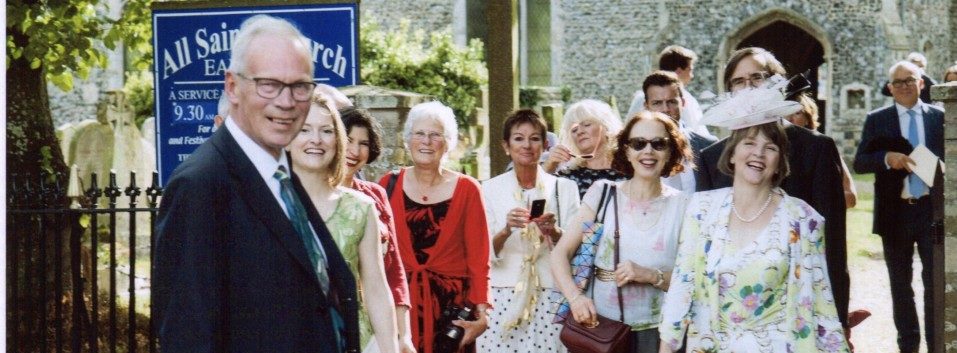I’m not going to review the books – which, to save you looking it up are Pride and Prejudice, War and Peace, and Crime and Punishment but, rather, to tell you how I first came to read them – all within a couple of years of each other as it happens, all in my impressionable mid-teens.
P&P came first, when I was sixteen. Emma was a set book for English A level that year. That is, it was if you were planning to take it after one year instead of two. Although there were a number of us in the Lower Sixth – between 12 and 15, I think – most of us weren’t taking A levels and the school begrudged paying two teachers just to teach English and History to Lynn and me. They couldn’t back out, they’d promised our parents, but wanted us to speed up and do the work in one year instead of two.
It’s possible to take English in a year and get a decent grade but not History, by the way. We didn’t even attempt it. In fact, I got a B in English and was perfectly happy with that (I was the casual sort) but Lynn got a C so the school had to keep Mr Baker for another year just for her. I went to the lessons and did the work to keep her company, but I couldn’t be arsed to take the exam.
Anyway, I can’t imagine how it was that I’d not read Jane Austen before. I suppose I thought she’d be staid. I read voraciously and was sometimes really quite pretentious, but I’d simply left her out. But I enjoyed Emma – not that I particularly liked many of the characters, but they interested me and I certainly liked Jane Austen. And so I read all her books within the next few weeks – I would have, even if I hadn’t much enjoyed the first, because I always did. I thought you had to read a good many books by one author to be able to write about the set book. I was astonished, years later, to find that not everyone thought that.
I loved them of course and reread them all a few times that year, and have continued to do so ever since. Well, I don’t bother with Northanger Abbey. And I read some more often than others. Actually, it’s about time I went through the whole lot again. But I have reread Pride and Prejudice within the past year and I do love it. Again, I’m not sure that I like any of the characters that much – I certainly wouldn’t identify with any of them. But I don’t think that matters.
Thinking about it, I wonder how many characters I’ve ever really liked. Another favourite book set in a similar period is Vanity Fair – and yes, I’ve returned to a lot of much-loved classics in the past year, largely because so many modern novels have deeply disappointed me and I wanted to know if it was me or the books that had got small: it is the books. And Becky Sharp is one of the most unlikeable ‘heroines’ of all. But she’s compelling, all the same.

Emma for me every time. There’s a Miss Bates n every village I know.
Miss Bates is the most truly admirable character in the whole book, isn’t she?
Yes.
Emma is the only Austin I have read. This was about 15 years ago, just after the BBC adaptation of Pride and Prejudice (the one with Jennifer Ehle and Colin Firth). I didn’t enjoy Emma partly because our heroine is a selfish stuck-up little so-and-so (Mr Knightly deserved better in my opinion) and partly because of the gossipy tone of the narrative. Not my cup of tea but the world would be a dull place if we all liked the same thing.
The trouble with that adaptation was the end, when they snogged in the street. They’re so fussy about period detail when it comes to clothes and accessories, but figures of speech and behaviour are completely anachronistic.
Think of poor Emma’s life, brought up by that dreadful dreary old man whom she’s left to look after when her governess marries, plenty of money but nothing to do and a father who’s so scared of disaster that she’s not allowed to do anything interesting. She was very kind to Harriet (and completely unbothered by her illegitimacy and lack of social standing) and, however misguidedly, only tried to help her. And she was very young, no wonder she was self-centred. Frank Churchill really mucked her about, it was a mark of quite some character that she coped with it so well, and with the ghastly Mr Elton.
I could have reviewed the book after all, couldn’t I? 🙂
Northanger Abbey was the set book for O level English Literature so it was dissected and explained so much, I still remember the discussion about “the curtain seemed to move” with the stress on ‘seemed’.
Analysing the book this way, as we did with Twelth Night and Ballad poetry has meant I haven’t read any other Austen nor progressed beyond Shakespeare studied at school. Haven’t seen film or TV adaptions either.